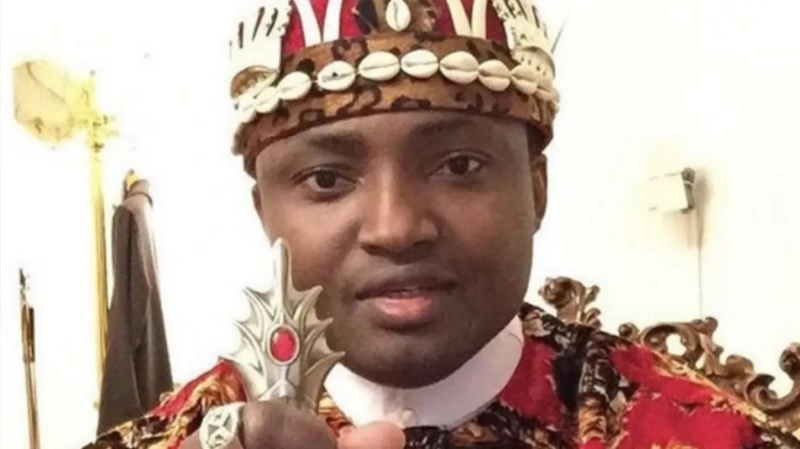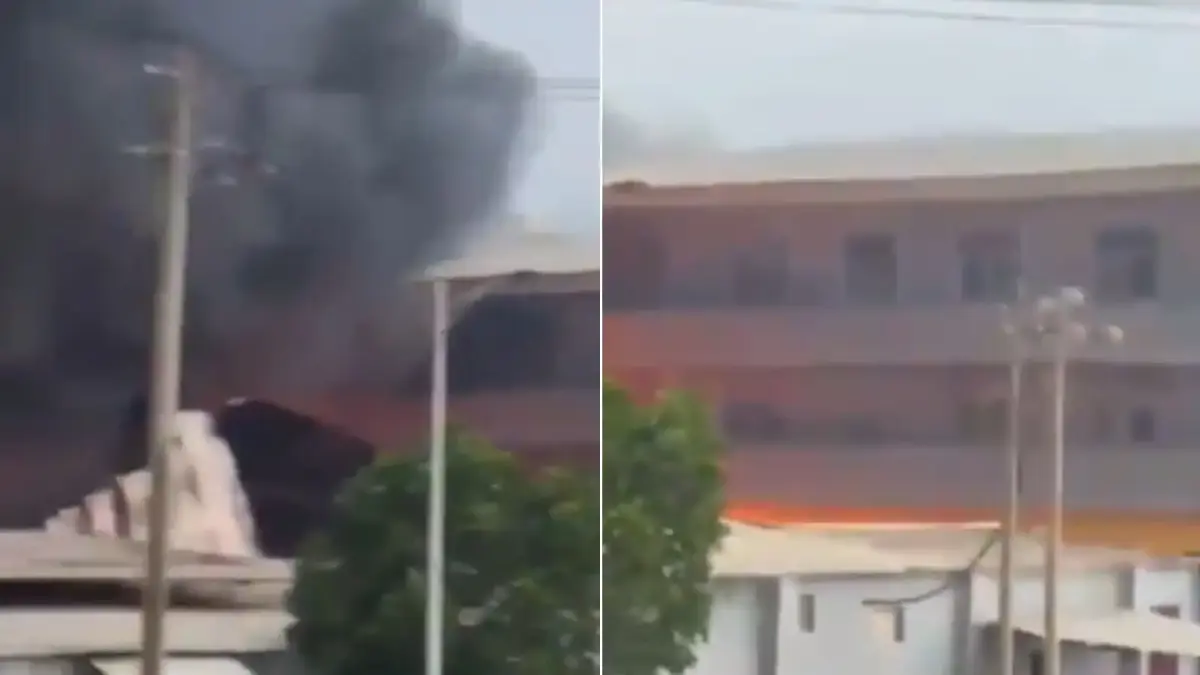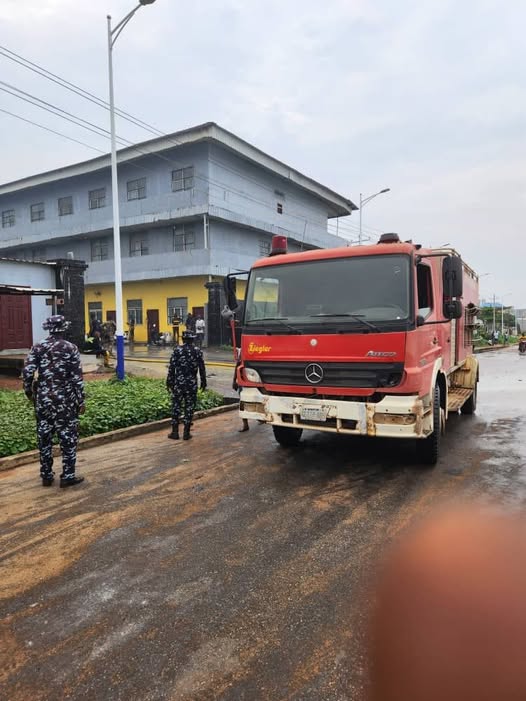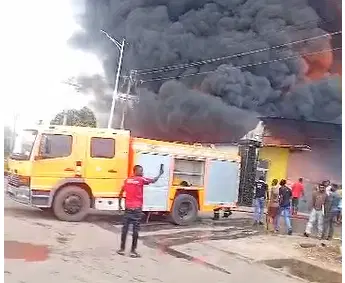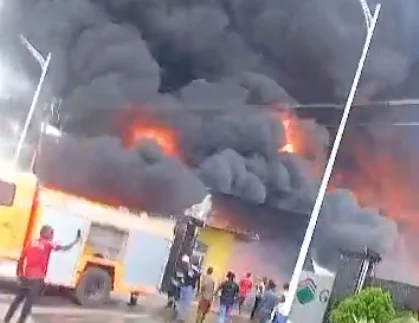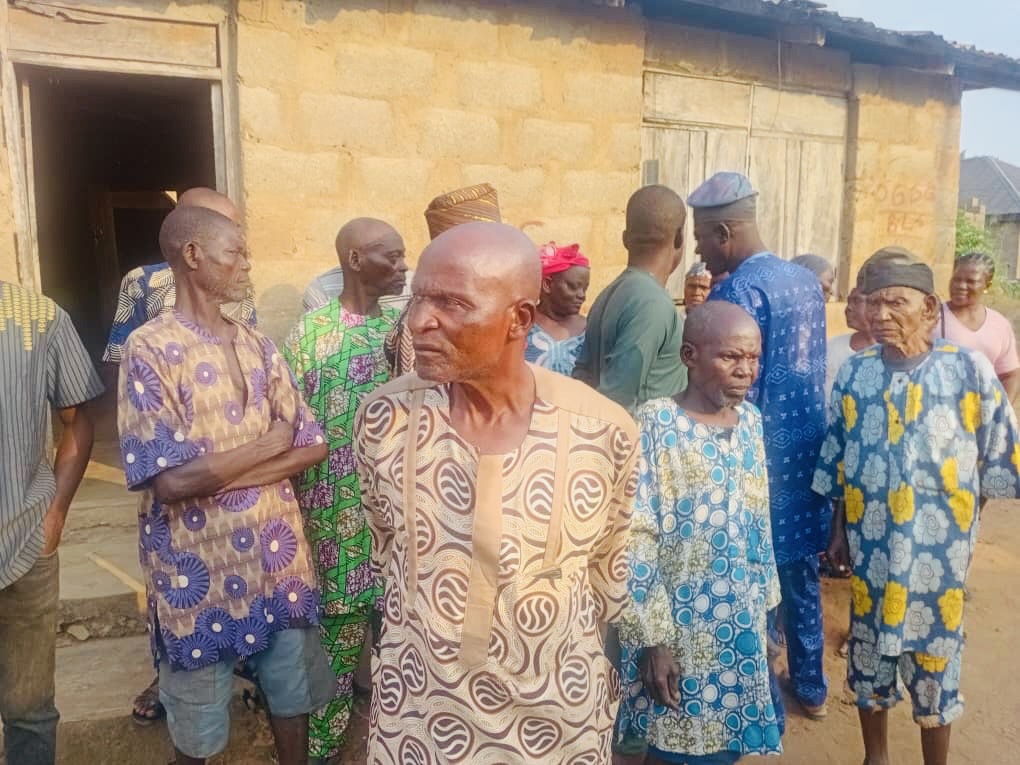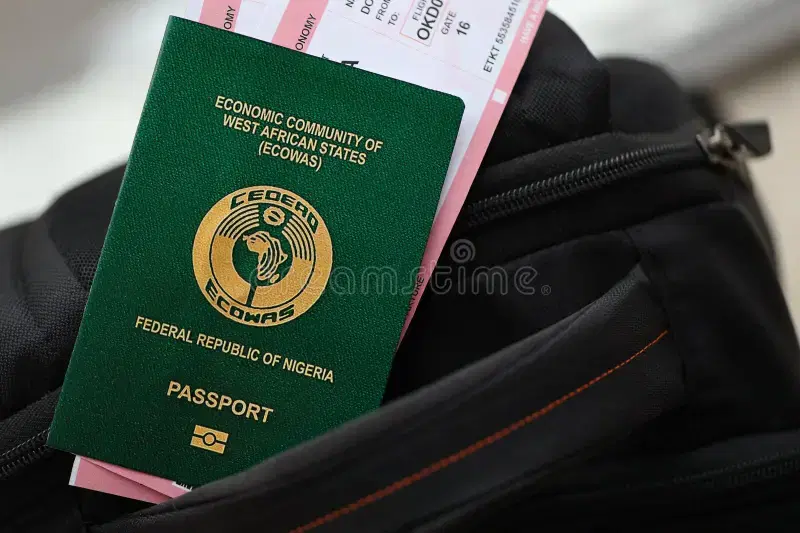A human rights lawyer and counsel for the Indigenous People of Biafra, Sir Ifeanyi Ejiofor, has said that the recent conviction and sentencing of Simon Ekpa by the Paijat-Hame District Court in Finland has once again exposed the strange blood and devastation flowing through the South-East region.
In a press statement released on Wednesday, Ejiofor blamed Igbo leaders and the political class in the region for their silence since Ekpa was convicted, saying their “silence or covert association gave oxygen to Ekpa’s fire” of unleashing atrocities in the region.
He described Ekpa as “a serial fraudster masquerading as a liberator”, whose actions have led the South-East to bleed profusely from the devastation and carnage unleashed by him and his foot soldiers.
He titled the press statement, ‘Strange blood in Ala-Igbo, when the pen becomes deadlier than the sword’, the lawyer lamented after every bloody outing by his foot soldiers. Ekpa mounted his online pulpit not to console or condemn, but to celebrate each atrocity.
According to him, for years the South-East region has bled profusely from the devastation and carnage unleashed by Ekpa and his foot soldiers, adding that no family, clan or kindred has been spared.
The statement read in part, “The recent conviction and sentencing of Simon Ekpa, a serial fraudster masquerading as a liberator, by the Päijät-Häme District Court in Finland on 1 September 2025, has once again torn the veil and exposed the strange blood flowing through parts of Ala-Igbo.
“While some carried out atrocities with machetes and guns, others, perhaps more dangerous, have inflicted a worse sacrilege with their tongues and keyboards: the promoters, the apologists, the social-media enablers who have glorified crime and cloaked terrorism in the false garment of agitation.
“Our political class is no less complicit. Many so-called leaders, by their silence or covert association, have given oxygen to Ekpa’s fire. Tell me: how many Igbo politicians have publicly spoken about his conviction? Their lips are sealed; their consciences bought by cowardice, complicity or convenience. But that, perhaps, is a tale for another day.
“Still, the central question remains: for how long shall Ndi Igbo live under the tyranny of fear? How many more mothers must wail before our elites rise to their responsibility? How many graves shall be dug before truth is spoken with courage? Evil thrives where good men keep silent, and today’s silence will be tomorrow’s complicity.
“Permit me to remind you: I personally took Simon Ekpa to court in Nigeria to challenge his falsehoods and defamatory crusade. The case subsists.
He was duly served with originating processes; yet, as is his character, he chose lies, deception and manipulation to mislead his gullible followers, including those who should know better.
“What deepens the wound is that, after every bloody outing, Ekpa mounted his online pulpit not to console or condemn, but to celebrate. He glorified the fear his agents sowed, boasted of their ‘successes’, and urged yet more terror. Today, his cheerleaders online clap for him and defend the indefensible, even when he posts grisly evidence of executions and barbarism on Igbo soil. Can such horrors ever find a place in a genuine agitation for freedom?”
He insisted that IPOB’s Directorate of State has publicly and repeatedly denounced Ekpa, distanced the global peaceful movement from his acts, and made clear that his conduct was not theirs.
He said a massive protest was organised, supervised, and carried out in Finland by the Directorate of State, adding that a strongly worded petition was also submitted to the Finnish Government, detailing the heinous activities of Simon Ekpa and affirming that he has no affiliation whatsoever with the peaceful global movement, and investigations were opened.
“Ndi Igbo in Finland faced scrutiny over his activities. Yet some among us shamelessly ignore these facts, preferring instead to elevate Simon’s lies above truth and reason.
“I will never lend my voice to fraud, nor will I keep silent while impostors deceive our people with poisonous gospel under the guise of liberation.
“Let it be clearly stated that the struggle for Biafra is divinely ordained; no mortal can quench that flame. The right of indigenous peoples to self-determination is recognised under international law, and indeed enshrined within Nigerian law. That right is sacrosanct and inalienable. But the method matters. A just cause cannot be pursued with unjust means.
“Igbo land has lost thousands of promising youths because of false prophets preaching violence. Yes, leadership failure in Nigeria created fertile ground for vulnerability, but murder, kidnapping and terror can never be the balm for our pain. They are crimes, condemned both before God and before man.
“To those who dance to Simon’s drumbeat online, let me sound a solemn warning: the same fire you fan today may consume you tomorrow. Many before you have already fallen victim to this evil pattern. It is only a matter of time.
“The struggle must be purified. The methodology must be interrogated. The character of those who lead must be weighed. And the blood of the innocent must never again be shed in the name of freedom.
“For years, the South-East region has bled profusely from the devastation and carnage unleashed by Ekpa and his foot soldiers. No family, clan or kindred has been spared. Nearly every household has a story, a brother butchered, a sister shot, a mother abducted, a friend or even a distant relative gruesomely murdered. The rivers of blood that have flowed across our land are not abstract tales; they are personal tragedies etched into the memories of Ndi Igbo,” the statement concluded.
Earlier, the Federal Government of Nigeria had indicated it may seek the repatriation of Simon Ekpa following his six-year prison sentence in Finland for terrorism-related offences.
Ekpa charges include participation in a terrorist organisation, incitement to commit terrorist crimes, aggravated tax fraud, and violations of the Lawyers Act.
The court found that between August 2021 and November 2024, Ekpa sought to promote the independence of the Biafra region through illegal means, using social media to gain influence and playing a key role in founding armed separatist groups designated as terrorist organisations.
The trial spanned 12 sessions, with the verdict delivered unanimously by three judges.
Speaking to The PUNCH on Monday, Information Minister Mohammed Idris said the government would “assess the situation and take decisions in the best interest of the country” regarding Ekpa’s repatriation.
Attorney General Lateef Fagbemi (SAN) also stated that further steps would be taken once the judgment is officially reviewed. Ekpa denied all charges against him.
FOLLOW US ON:
FACEBOOK
TWITTER
PINTEREST
TIKTOK
YOUTUBE
LINKEDIN
TUMBLR
INSTAGRAM

 News9 hours ago
News9 hours ago
 Politics9 hours ago
Politics9 hours ago
 News9 hours ago
News9 hours ago
 News8 hours ago
News8 hours ago
 News9 hours ago
News9 hours ago
 Politics8 hours ago
Politics8 hours ago
 Crime8 hours ago
Crime8 hours ago
 News8 hours ago
News8 hours ago
